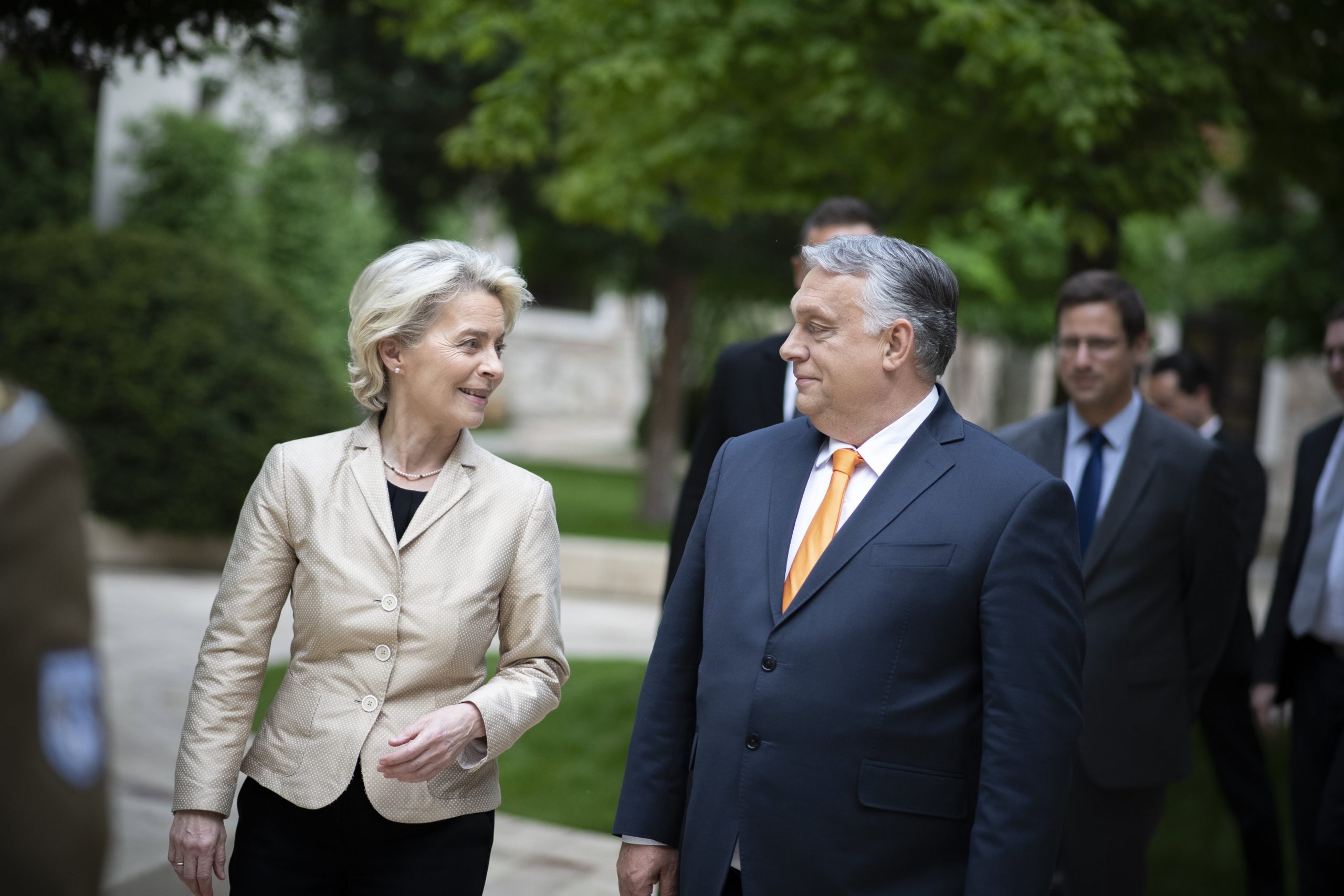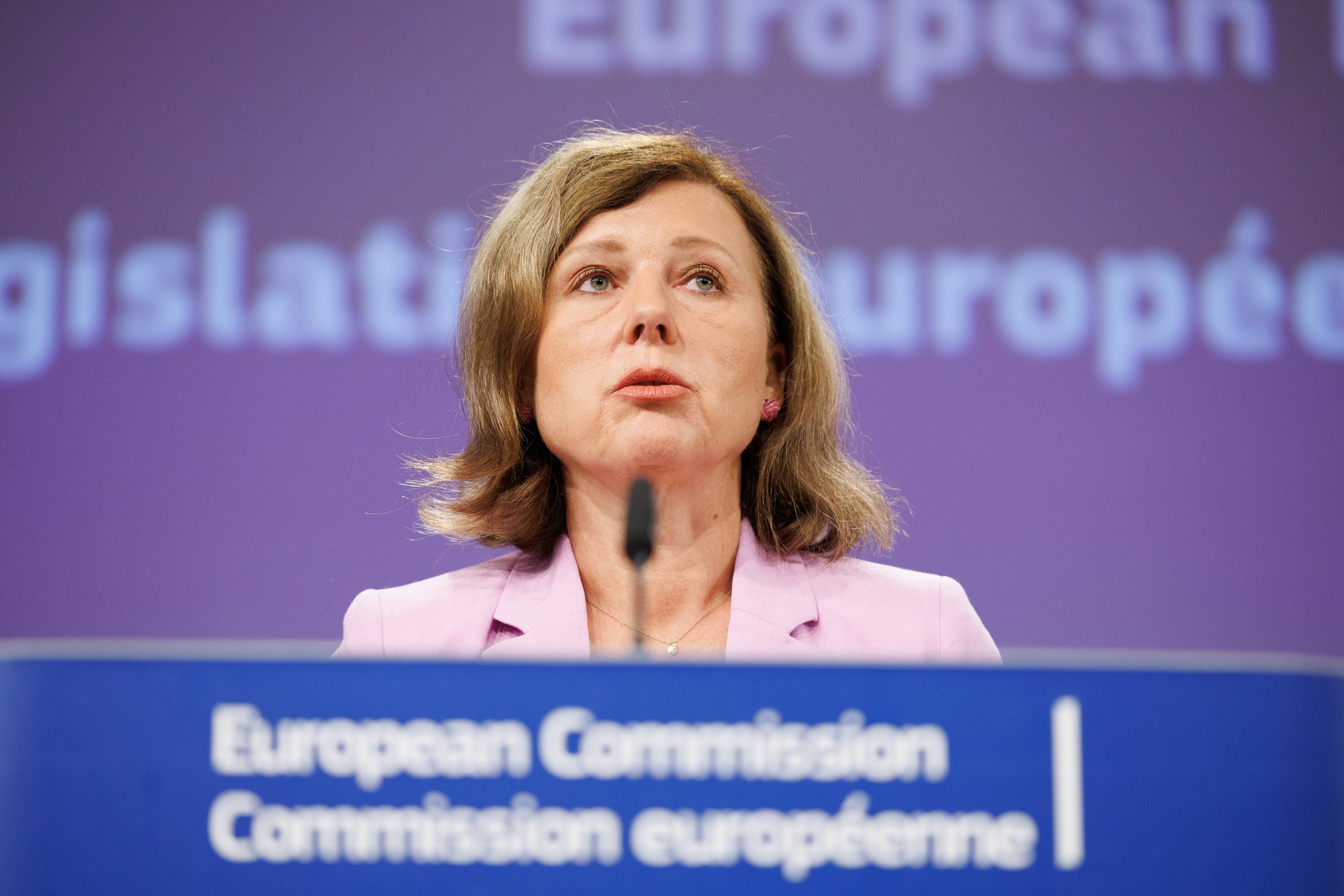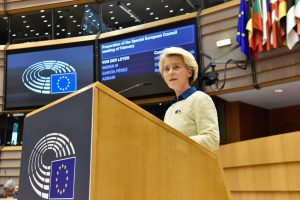
The government has sent its reply to the Commission on the conditionality procedure.Continue reading

During a live event this week, Vera Jourová, Vice President of the European Commission for Values and Transparency, has announced that she will not stand for a third term in the European Commission, reported Politico. The Czech-born politician, who in recent years has been the leading force behind punitive measures against the Hungarian and Polish government, had listed her own personal reasons for her departure. In reality though, she has more likely been pushed instead of jumping out by her own choice.
The Czech politician, who previously also served as Commissioner for Justice, Consumers, and Gender Equality, had explained her reasons by saying – “Enough is enough. After 10 years, maybe one could have some kind of political detox.” The left-leaning Brussels news site, Politico, has also found a rather kind interpretation for the commissioner’s departure. In their view, since her nominating party, former Prime Minister Andrej Babis’ ANO is now in opposition, “it is unlikely that Jourová would get the necessary support from her home country.”
Let us start by explaining why this argument does not stand up to facts. Babis’ ANO currently polls at 34 percent in the Czech Republic, over twice the points that current Prime Minister Petr Fiala’s government has (15 percent). If she had the support from her former party, she could well have the chance to be re-elected. In fact, she does not. Although there are no public declarations to this effect,
it is widely understood that as far as party nominations are concerned, Jourová’s is the greatest regret that Andrej Babis might have.
As soon as she had assumed her first office in Brussels, but especially since becoming EC Vice President in 2019, Jourová had pursued a radical pro-migration, federalist Eurocentric policy that was at loggerheads with Babis’ national sovereignist efforts. Babis’ political alliance and friendship with Hungarian Prime Minister Viktor Orbán was perhaps the most visible proof of an unbridgeable political and moral ravine that had opened up between him and Jourová.
Many thanks, dear @JuditVarga_EU, but not yet. And I will always fight for democracy, in any role.
I will invite you to my Commission farewell party in Brussels next year, though. https://t.co/vYxqbasInm— Věra Jourová (@VeraJourova) September 26, 2023
Furthermore, although the current Petr Fiala government, hand in hand with the ultra-progressive Czech president Petr Pavel, are entirely in unison with the type of Eurocentric politics that Jourová pursues, they might have their own candidate for the post.
As far as her own explanation of a “political detox” is concerned, she is in fact considered by many to be the top official behind Brussels’ toxic, ideological, punitive bureaucracy. Jourová is a key figure in creating a system where, as Hungarian Minister for Regional Development Tibor Navracsics had recently pointed out, European funds and grants are increasingly becoming captive to political and ideological criteria, especially towards countries led by conservative governments.
As much as she is admired by some of her supporters for being relentless in pursuing certain points, her style of partisan politicizing made her incapable of compromising or of creating a democratic consensus. Her means of getting her way in politics was the use of punitive measures, such as withholding vital development funds, resulting in an open rift between Brussels and Center-right European governments.

Tibor Navracsics, on the left and Vĕra Jourová. Photo: European Commission
The list of disputes between Jourová on the one side, and Budapest and Warsaw on the other would be too long to recall in its entirety, but let us mention two that have stirred emotions in the past few years. The Minority Safepack initiative had collected over one million signatures in EU Member States, and was meant to protect and promote cultural and linguistic diversity, with a special focus on indigenous European minorities. This was especially important for the Hungarian government as nearly two million Hungarians live today outside the borders of Hungary. When the signatures were presented in 2020, Jourová had swept the initiative off the table with a brief, two-sentence message, without acting on its recommendations.

Ursula von der Leyen. Photo: European Parliament
In 2022, a mighty row had broken out between the Polish government and the Commission, when a decision was made to continue to block EU recovery funds from Warsaw due to “rule-of-law” concerns. Polish Justice Minister Zbigniew Ziobro, pointing at the justice reforms completed by his government, had accused Commissioner Ursula von der Leyen of “deceiving Poland.” However, leaked information has revealed that Von der Leyen was in fact leaning towards unblocking the funds, but after Jourová’s strong objection, she backed out from doing so.
Featured Image: European Commission